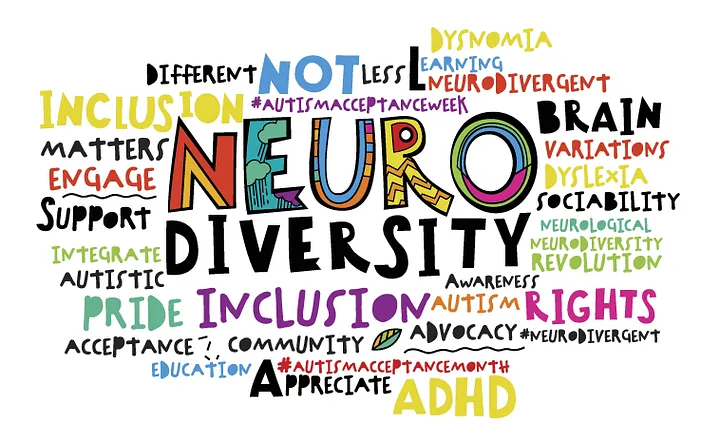We’ve spent years, quite rightly, pushing the diversity agenda forward. But if we’re honest with ourselves, most of that energy has gone into vital conversations around gender and ethnicity. It’s left a significant part of the human picture out of focus: neurodiversity. I think it’s high time we widened our view. For us in HR, this isn’t just another initiative; it’s a chance to tap into a huge wellspring of talent and find a genuine competitive advantage in cognitive difference.
So, What Exactly Do We Mean by Neurodiversity?
Put simply, neurodiversity is the understanding that conditions like autism, ADHD and dyslexia aren’t deficits. They are simply natural, normal variations in the human brain. Think of it this way: a team isn’t stronger because everyone thinks alike, but because they don’t. Real inclusion goes far beyond appearances; it’s about genuinely valuing the different ways people process information, tackle problems, and see the world.
I’ve seen firsthand across various sectors how a cognitively diverse team can transform an organisation’s output. The same principle holds true inside our own walls. When we make a conscious effort to support and nurture our neurodivergent colleagues, the entire organisational culture becomes richer and more resilient for it.
Rethinking Recruitment: Finding the Strategic Edge
A truly neuro-inclusive hiring process is more than just ticking boxes on an equality form. It’s about taking a hard look at our recruitment methods and asking if they’re inadvertently filtering out brilliant minds. We know that neurodivergent individuals often have exceptional skills in pattern recognition, deep concentration, and innovative thinking. Yet how often do we miss this because our standard interviews reward smooth talkers over deep thinkers?
If we want to access this talent, we need to rewrite the old recruitment script. Here’s how:
- Instead of a high-pressure, abstract chat, could you use a practical work simulation or a task-based assessment that actually reflects the job?
- Let candidates show you what they can do. Offer the option to submit a portfolio or past project instead of relying on someone’s ability to sell themselves verbally.
- Give everyone a clearer picture of what to expect. Provide clear guidelines before the interview, explaining the format, who they’ll meet, and what you’re looking for. It demystifies the entire process.
Let’s be clear: this isn’t about giving anyone preferential treatment. It’s about being more precise in how we assess talent. By adapting our methods, we create a genuinely level playing field and start to uncover skills our old processes would have missed.
Five HR-Led Actions to Build a Truly Neuro-Inclusive Culture
- Raise Awareness Through Lived Experience
Bring in the real experts: people with lived experience. Forget the dry PowerPoint slides. A workshop led by neurodivergent speakers sharing their own stories builds genuine empathy and dismantles stigma in a way nothing else can. - Rethink Job Design and Descriptions
Scrutinise your job descriptions. Are you asking for what’s essential, or just listing idealised traits? Language is critical here. Get rid of vague demands like "strong communication skills" if the role is actually about deep, focused analysis. - Redesign Workplace Environments
Take a fresh look at the physical workspace. Simple, sensory-friendly changes can make a world of difference. Think adjustable lighting, noise-cancelling headphones, or even clear visual schedules. These aren’t just ‘nice-to-haves’; they are tools that unlock productivity and support wellbeing for everyone. - Foster Open Dialogue Without Fear
Create a culture where it’s safe to talk about support needs. This means actively encouraging neurodivergent employees to be open, and critically, equipping line managers to listen and respond constructively, without judgement. Check-ins need to be a regular, proactive part of their routine, not a panicked reaction to a problem. - Celebrate Cognitive Strengths, Not Just Compliance
Shift from compliance to celebration. Make a point of recognising the unique value neurodivergent team members bring. Whether it’s their incredible systems thinking or a completely out-of-the-box creative solution, spotlight these contributions in team meetings, on the intranet, or through internal stories.
It’s About Building a Future for Every Kind of Mind
Ultimately, embracing neurodiversity isn’t another box-ticking exercise for the annual report. It’s a fundamental shift in mindset. It’s a powerful signal that your organisation is truly future-ready, one that values deep thinking over conformity and genuine agility over clinging to tradition.
This is our opportunity to lead, not wait for neurodiversity to become the next corporate trend. We in the HR profession are uniquely placed to set the tone. If we use empathy as our guide and inclusion as our mission, we can build working cultures where every single person feels seen, heard and has the right support to do their best work.
The call to action for us is clear. Let’s make our organisations places where every kind of brilliance can find a home. When our teams truly reflect the full spectrum of human thinking, innovation stops being a lucky accident and starts becoming business as usual.






